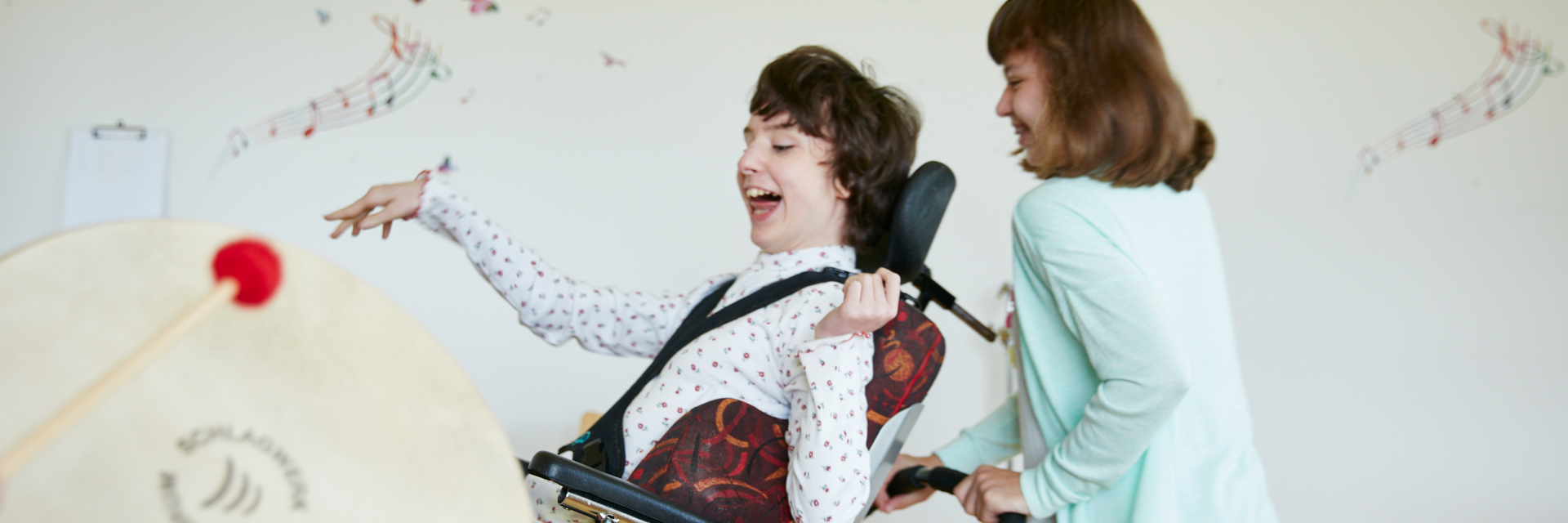
Music Therapy
Relaxation, self-awareness and sound interaction
In music therapy we use music to get in touch with the small and big patients of the paediatric clinic and to give them a new chance to experience themselves.
Through the use of music and instruments, new ways are opened up in the interdisciplinary cooperation of the therapy areas. In this type of creative therapy, we use the medium of music specifically to create a non-verbal access to one's own resources. Furthermore, perception and self-care are to be strengthened by perceiving body sensations and affects and expressing them through non-linguistic media.
In this way, we train development, post-maturation and perception through different sounds and thus make self-regulation, stabilisation as well as self-efficacy and participation possible, maintain and promote them.
In the multisensory approach, we focus on the activity of the patient. Instruments can be explored, experienced and made to sound in a playful setting. In this way, they also serve as an expression of inner processes.
In individual music therapy, the respective needs are addressed individually. In addition, there are various music therapy offers in small groups with 2 to 6 participants, also in cooperation with the other pedagogical-therapeutic disciplines.
In addition to singing and classical accompanying instruments such as electric piano and guitar, percussion and Orff instruments, we also use special music therapy instruments for body awareness and regulation as needed, all of which work through their sound. These include, for example, lyra, koshi, kalimba, ocean drum, sound cradle and therapy singing bowls.
In the field of neurorehabilitation, music therapy is not a health insurance benefit like the other forms of therapy and must be financed to a large extent externally. In addition to foundation funds, we have also received support in the past through generous donations and bequests for financing. In order to maintain music therapy at the Children's Hospital in the long term, we continue to rely on corresponding support. More information on how to donate can be found here.



